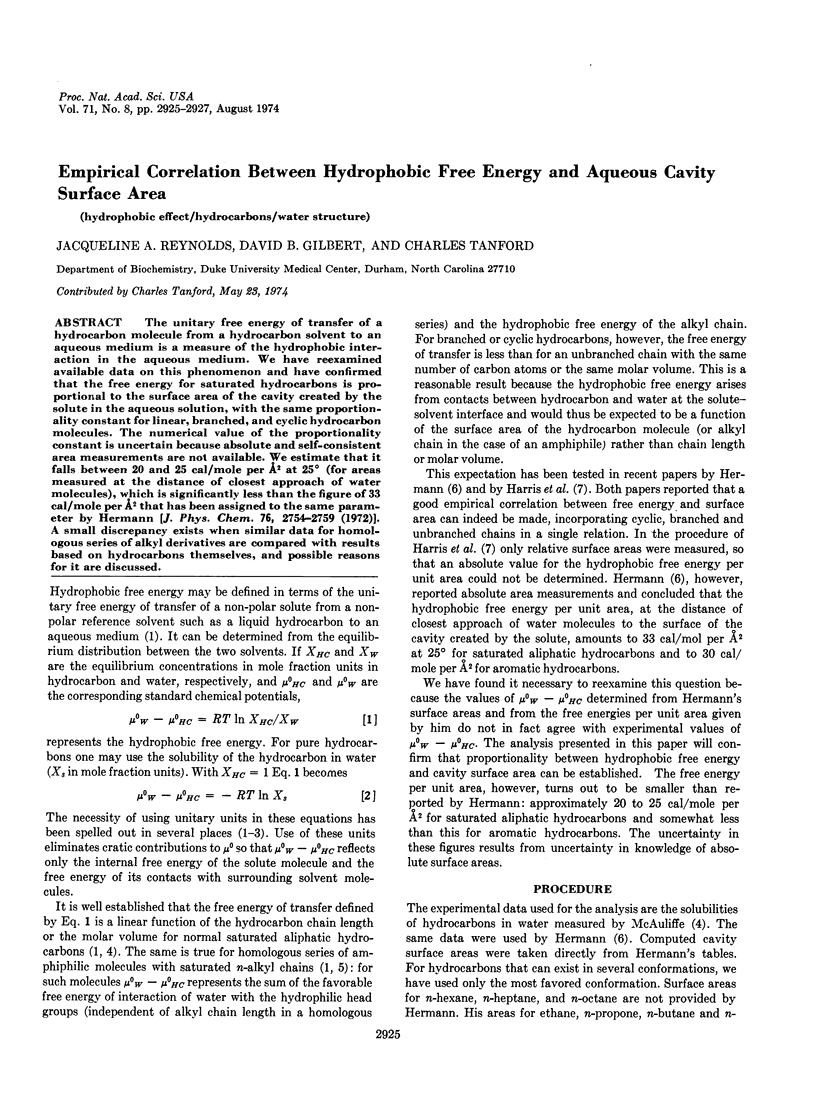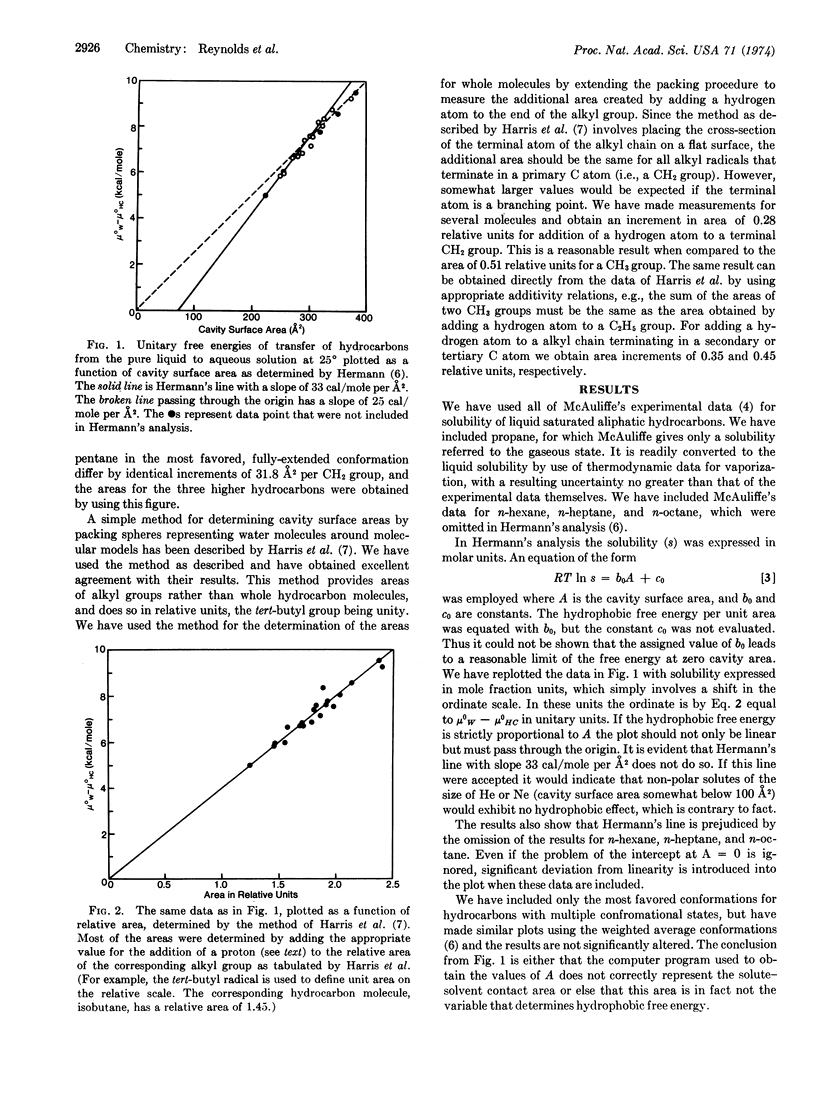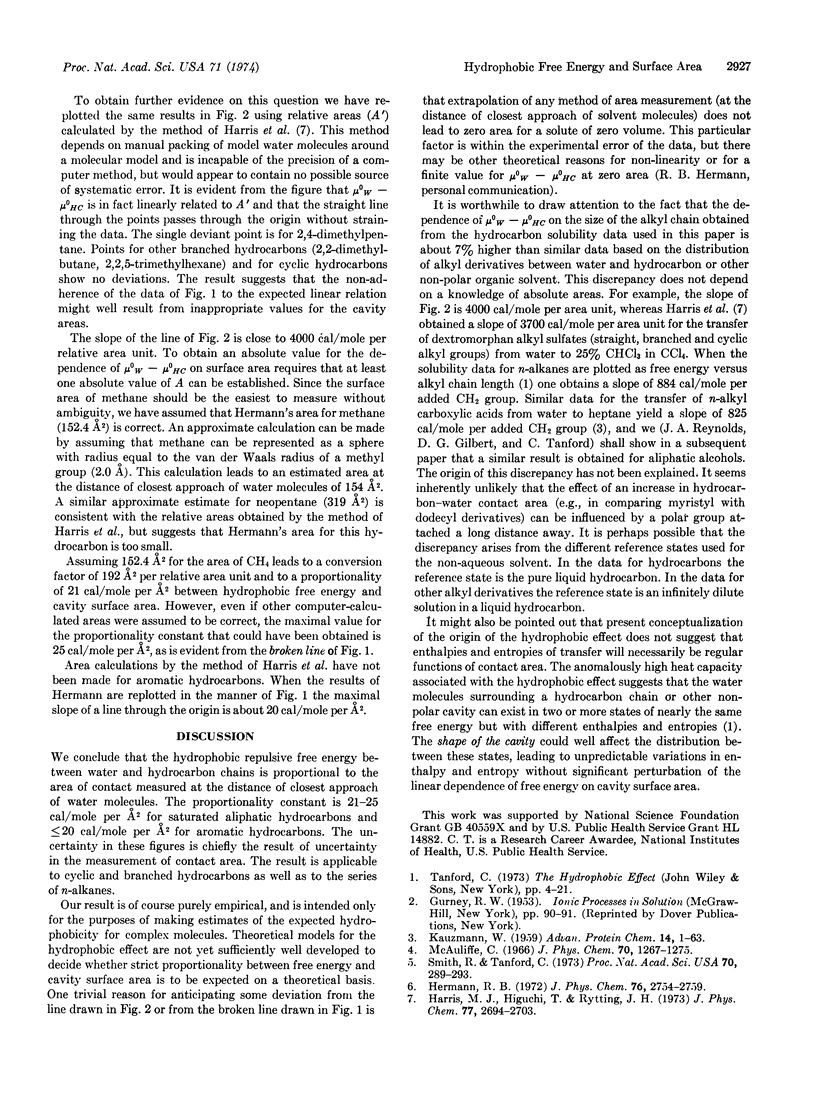Abstract
The unitary free energy of transfer of a hydrocarbon molecule from a hydrocarbon solvent to an aqueous medium is a measure of the hydrophobic interaction in the aqueous medium. We have reexamined available data on this phenomenon and have confirmed that the free energy for saturated hydrocarbons is proportional to the surface area of the cavity created by the solute in the aqueous solution, with the same proportionality constant for linear, branched, and cyclic hydrocarbon molecules. The numerical value of the proportionality constant is uncertain because absolute and self-consistent area measurements are not available. We estimate that it falls between 20 and 25 cal/mole per Å2 at 25° (for areas measured at the distance of closest approach of water molecules), which is significantly less than the figure of 33 cal/mole per Å2 that has been assigned to the same parameter by Hermann [J. Phys. Chem. 76, 2754-2759 (1972)]. A small discrepancy exists when similar data for homologous series of alkyl derivatives are compared with results based on hydrocarbons themselves, and possible reasons for it are discussed.
Keywords: hydrophobic effect, hydrocarbons, water structure
Full text
PDF


Selected References
These references are in PubMed. This may not be the complete list of references from this article.
- KAUZMANN W. Some factors in the interpretation of protein denaturation. Adv Protein Chem. 1959;14:1–63. doi: 10.1016/s0065-3233(08)60608-7. [DOI] [PubMed] [Google Scholar]
- Smith R., Tanford C. Hydrophobicity of Long Chain n-Alkyl Carboxylic Acids, as Measured by Their Distribution Between Heptane and Aqueous Solutions. Proc Natl Acad Sci U S A. 1973 Feb;70(2):289–293. doi: 10.1073/pnas.70.2.289. [DOI] [PMC free article] [PubMed] [Google Scholar]



